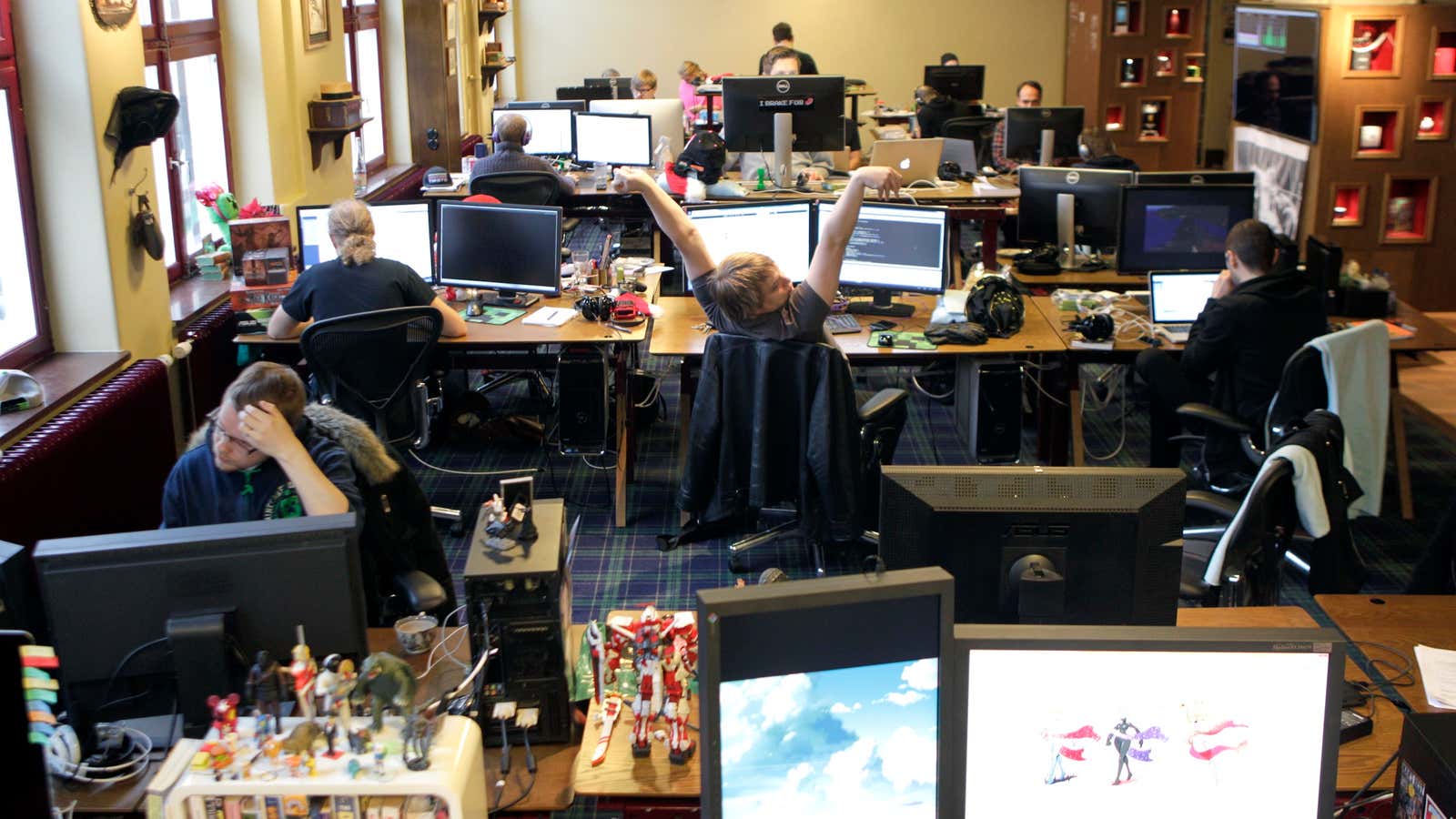Microsoft formally announced today that it was buying Mojang, the company behind the massively popular, open world game Minecraft, a move that’s come as a shock to fans of the game.
Markus “Notch” Persson, the game’s creator and Mojang’s majority shareholder, never expected Minecraft to become a global phenomenon. But it did, and as a consequence he became a public figure, the owner of an incredibly profitable company, and a prominent symbol for the struggle of independent game development.
Seemingly every statement or tweet from him got put under a microscope. The attention made him increasingly uncomfortable, he wrote in a personal blog post about the decision to sell:
I was at home with a bad cold a couple of weeks ago when the internet exploded with hate against me over some kind of EULA situation that I had nothing to do with. I was confused. I didn’t understand. I tweeted this in frustration. Later on, I watched the This is Phil Fish video on YouTube and started to realize I didn’t have the connection to my fans I thought I had. I’ve become a symbol. I don’t want to be a symbol, responsible for something huge that I don’t understand, that I don’t want to work on, that keeps coming back to me. I’m not an entrepreneur. I’m not a CEO. I’m a nerdy computer programmer who likes to have opinions on Twitter.
It’s an unusually candid revelation of the pressure that startup CEOs face. Often, young and inexperienced founders are very rapidly expected to take responsibility for a growing number of employees, and the millions of people who use their product.
Startup advice manuals rarely talk about the effects of a constant flood of negative tweets and articles, let alone the inability to speak publicly and candidly without it becoming news. Some executives embrace it. In Persson’s case, even after turning over CEO duties and ceasing to work on the popular product he built, the pressure was too much.
He’ll go back to creating little, interesting things, he said, but doesn’t want to be in charge of anything again. Selling the company was the only way he felt he could, as he put it, stop reading all of the negative feedback he got.
“It’s not about the money. It’s about my sanity,” Persson wrote.
